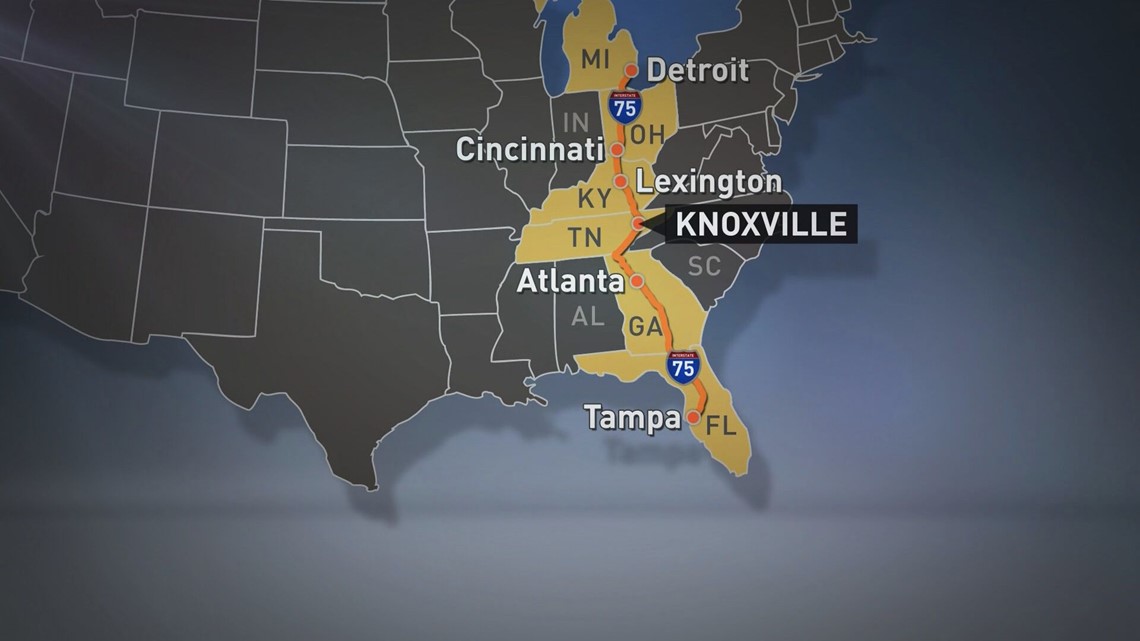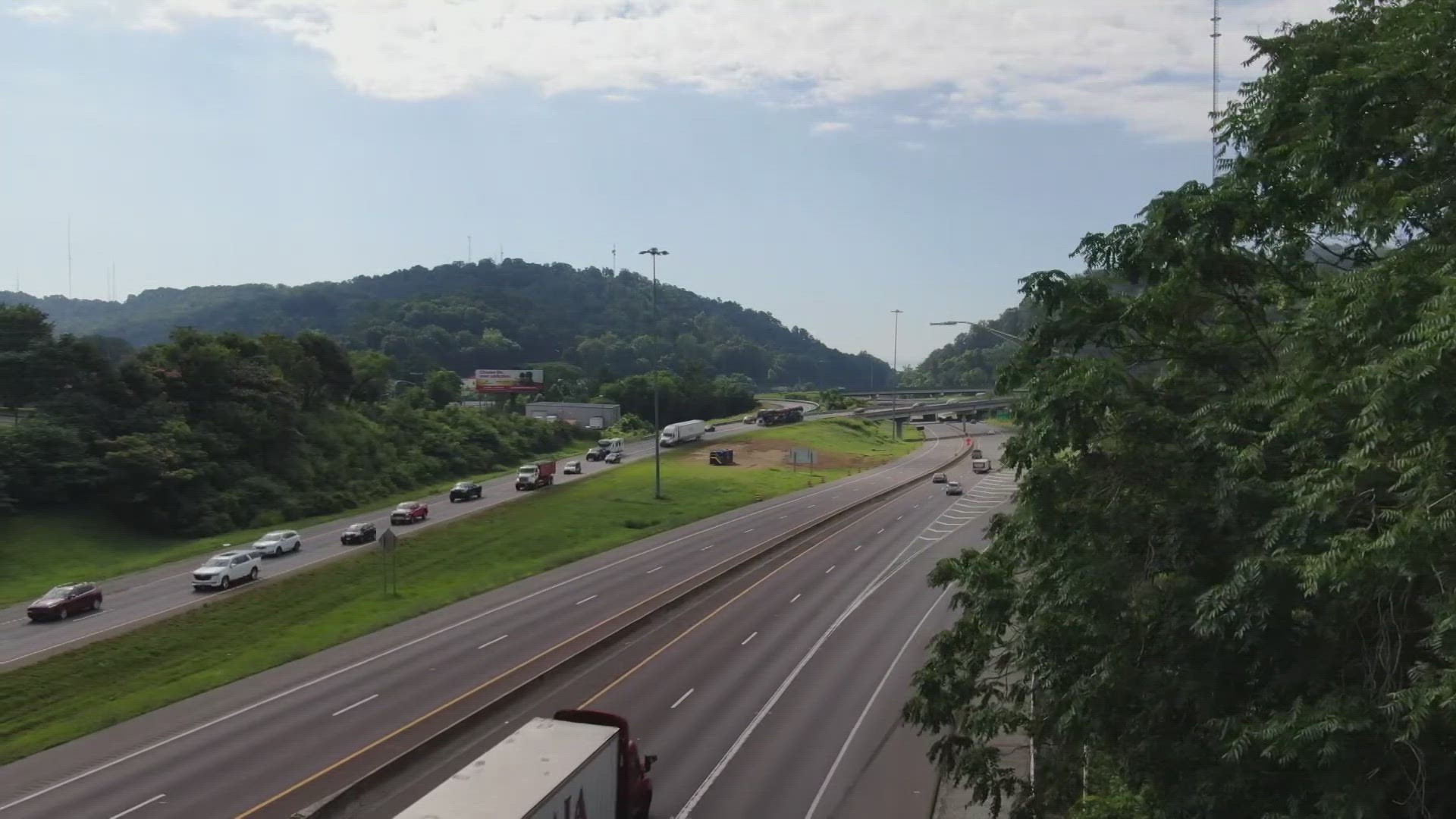KNOXVILLE, Tenn. — In the city of Detroit, authorities are fighting an ever-growing fentanyl problem.
"The price has been greatly reduced, which means the availability is opened up to more people," said Capt. Anthony O'Rourke with the Detroit Police Department. "Detroit has confiscated a lot more drugs than we did here to date last year."
East Tennessee law enforcement says that the problem is traveling down I-75 and into local communities. It's why they launched the 313 Initiative, named after the Detroit area code, to specifically target criminals from that area.
"We're not saying that every drug dealer we have comes from Detroit, but we will say that a large percentage of our drugs are coming in from Detroit," said Knox County District Attorney General Charme Allen. "We really thought we can make a difference by focusing on those individuals that would make the biggest dent in our drug problem."
In its first seven months, Allen said East Tennessee authorities have arrested 141 people with connections to the Detroit Area.
They've confiscated around 50 pounds of methamphetamine, around 30 pounds of heroin and fentanyl, 105 guns and more than $450,000 in cash from those arrests.
"That number does surprise me. That's a pretty significant number," said O'Rourke. "Detroit has always been — historically — a destination location for drugs, which means that this is where they usually end once they get here."


He said most of their drugs come from the southern border, with the exception of ecstasy pills smuggled in from Canada.
"I don't think it's a Detroit problem. I don't think it's an East Tennessee problem. It's a nationwide problem that we're dealing with," he said. "I'm sure there's other people, besides Detroiters that are trying to reap the benefits in East Tennessee."
He said they're working closely with authorities in Tennessee, West Virginia, Ohio, Minnesota, South Dakota and North Dakota to stop drug traffickers.
"We're discussing people that are traveling from point 'A' to point 'B' in different jurisdictions," he said. "If they came from point 'A,' what does the information look like there? How do we identify who they're traveling with... and then take enforcement action?"
In Ohio, the state highway patrol reported at least 7,000 drug seizures along I-75 since 2018. The vast majority involved marijuana.
In Kentucky, the state police counted at least 1,600 drug seizures along I-75 in that same time frame.
Neither the Tennessee Highway Patrol nor the Tennessee Bureau of Investigation had data for drug seizures specific to I-75, but they know it's a problem.
"The people of East Tennessee are fed up with drug trafficking coming into our communities," said Ryan Desmond, the Blount County District Attorney General. "We are tired of the deaths, the crime and the violent activity that results from that drug trafficking."


In Central Florida, its proximity to several major interstates makes it easy for traffickers to bring fentanyl into the community.
"It's flowing over the border. It's coming from Mexico, it's going up to Atlanta and that's the route," said Bob Gualtieri, the Pinellas County Sheriff. "It's coming down here to Florida killing people every day so we've got to do something about it. We've got to do it differently. We've got to do it better."
That's why District Attorney General Charme Allen said they'll continue to fight the drug epidemic every single day.
"A deadly amount of fentanyl is the same as a grain of sand or a grain of salt," she said. "We've confiscated 30 pounds. That's when you start to realize the impact this 313 Initiative is having."

